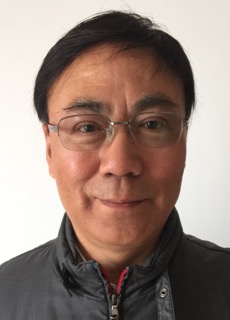请点击以下链接:
Dr. Jiang: SEP- Possibility of International Arbitration
With regard to intellectual property rights disputes concerning the standard-essential patents, there is more international elements involved, the number of disputes have increased, and it implication on the fair markets competition is also getting greater. Thus resolving these disputes in a timely, speedy and fair manner is undoubtedly of great significance to economic development.
However, most of these disputes are tried by the local court that has competent jurisdictions. For instance, two well-known cases involving China parties indicates the same, i.e. Huawei v IDC were tried by Shenzhen Intermediate Court and subsequently appealed to Guangdong Provincial High Court, and Huawei v ZTE was tried by a German Court and subsequently transferred to a EU Court. Of course the judges did a good job. The two cases were beautifully handled.
In recent years, China has emphasized two judicial policies. One is the protection of intellectual property rights is be led by the judicial protection, and the other is the emphasizing the alternative dispute resolution mechanisms including arbitration. The former is attributed to the comprehensive protection and strength. The latter is due to the high pressure on the number of disputes in the court, and thus the parties tend to explore the other alternative dispute resolution mechanisms.
However the blockage of resolving the standard-essential patents disputes through international arbitration lies in the facts that there has to be an arbitration agreement between the parties, before the arbitration tribunal can admitted such a case.
For the parties to enter into an arbitration agreement, the arbitration has to be attractive to the parties, for instance it must be supported by the valid arbitration system, relevant international treaties, specialties arbitrators, and professional arbitration institutions. The above characteristics may make the parties to believe that this kind of arbitration is reliable and convenient. It is recommended that the international arbitration for standard-essential patents shall consider using of big data and advanced technology from the very beginning. It may try to have the massive, trivial and basic works, including the training of arbitrators, to be done by the artificial intelligence. It may even try to have the first draft of the arbitration award be automatically generated based on the information the arbitrator's puts into the system. This is of course going to take a while to develop.
标准必要专利的知识产权纠纷,国际化趋势越来越明显,纠纷越来越多,对市场公平竞争影响也越来越大。及时、便捷和公正的解决这些纠纷,无疑对经济发展具有重要意义。
然而,这些纠纷的大多数,是被地域性、管辖权最强的司法承担着;涉及中国的两个有名的案件,都说明了这种状况:
华为 v IDC 深圳中院---广东省高级法院
华为 v 中兴 德国法院---欧盟法院 当然,法官们做了出色的工作,这两个案件结果都引人注目。
近年来,中国强调了两项司法政策:
对知识产权的保护以司法保护为主导;同时,也强调包括仲裁在内的“多元化”纠纷解决。前者原因是保护综合与力度强,后者原因司法纠纷多压力大、当事人也有多样化选择和仲裁方式的魅力。
标准必要专利纠纷通过国际仲裁途径解决,瓶颈在于使用者的选择,要有仲裁协议,作为受理和作出仲裁的基础。
这就涉及到这类仲裁对使用者的吸引力,就要有与现行仲裁制度、相关国际条约的协调和支撑,本领域专业、合适的仲裁员和精干的仲裁机构等特色。
上述特色使这种仲裁让使用者感到可靠,除此外是要让使用者感到便捷,建议标准必要专利国际仲裁从开始就注意运用大数据、智能化的先进技术,将仲裁机构事务性、琐碎性、巨量性、基础性工作包括仲裁员继续培训交给人工智能去做。甚至可以根据仲裁员输入系统的信息,自动生成仲裁决书的初稿。这当然需要一个发展过程。






 11011502003002
11011502003002